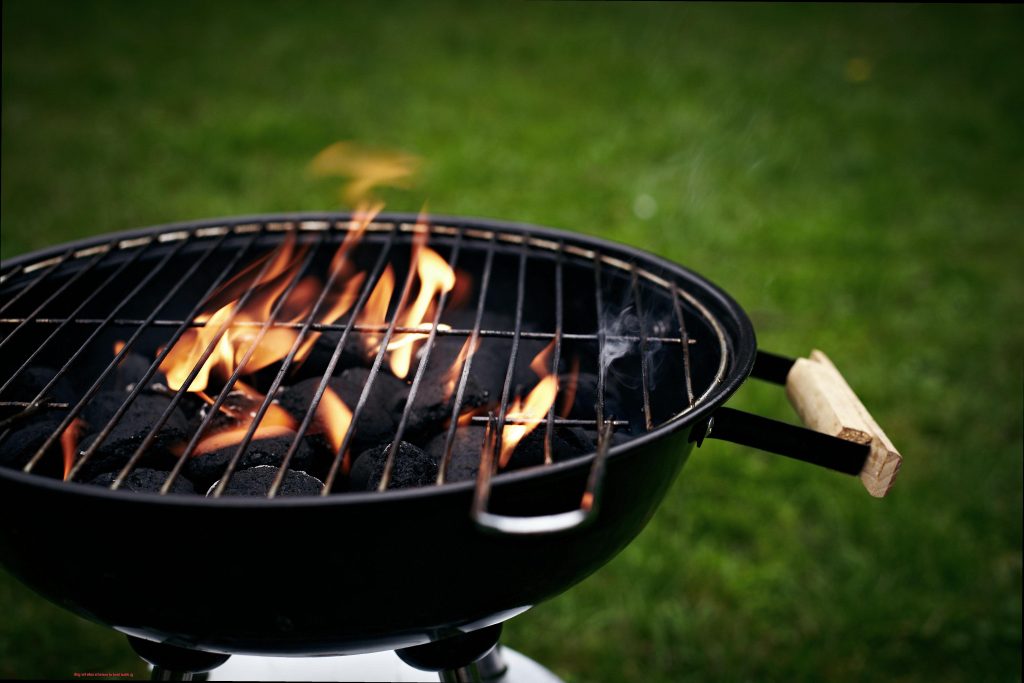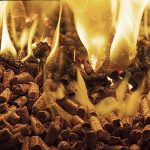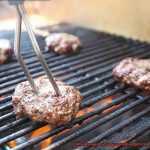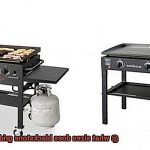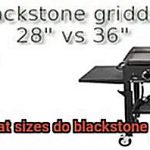It’s that time of year again – the sun is shining, the birds are chirping, and your stomach is growling for some delicious grilled food. But before you start flipping burgers and skewering kebabs, have you ever considered the type of metal your grill is made from? It may not be something you’ve given much thought to, but it can actually have a big impact on both the taste of your food and your health.
You might assume that any old metal will do for grilling, but unfortunately that’s not the case. Certain metals like aluminum, copper, and brass can release harmful fumes when exposed to high heat. These fumes can potentially contaminate your food and put your health at risk.
So what kind of metal should you use instead? The two safest options for grilling are stainless steel and cast iron. Stainless steel is tough as nails and resistant to rust, making it perfect for outdoor grilling. Cast iron, on the other hand, excels at searing meat and locking in those juicy flavors that we all love.
But there’s more to safe grilling than just choosing the right metal. In this blog post, we’ll dive deep into all things grilling – from which metals work best for different types of cooking to how to properly clean your grill (because nobody wants a dirty grill ruining their meal). We’ve got plenty of tips and tricks up our sleeves to help you become a true grill master.
So grab your favorite apron and tongs – it’s time to get fired up about safe grilling practices.
Contents
What Is Grilling?
Grilling is an age-old cooking method that has stood the test of time for one simple reason – it delivers delicious, smoky flavors that cannot be replicated by any other method. The process involves cooking food directly over a heat source, typically an open flame or hot coals, and is known for its ability to cook food quickly while infusing it with mouth-watering aromas.
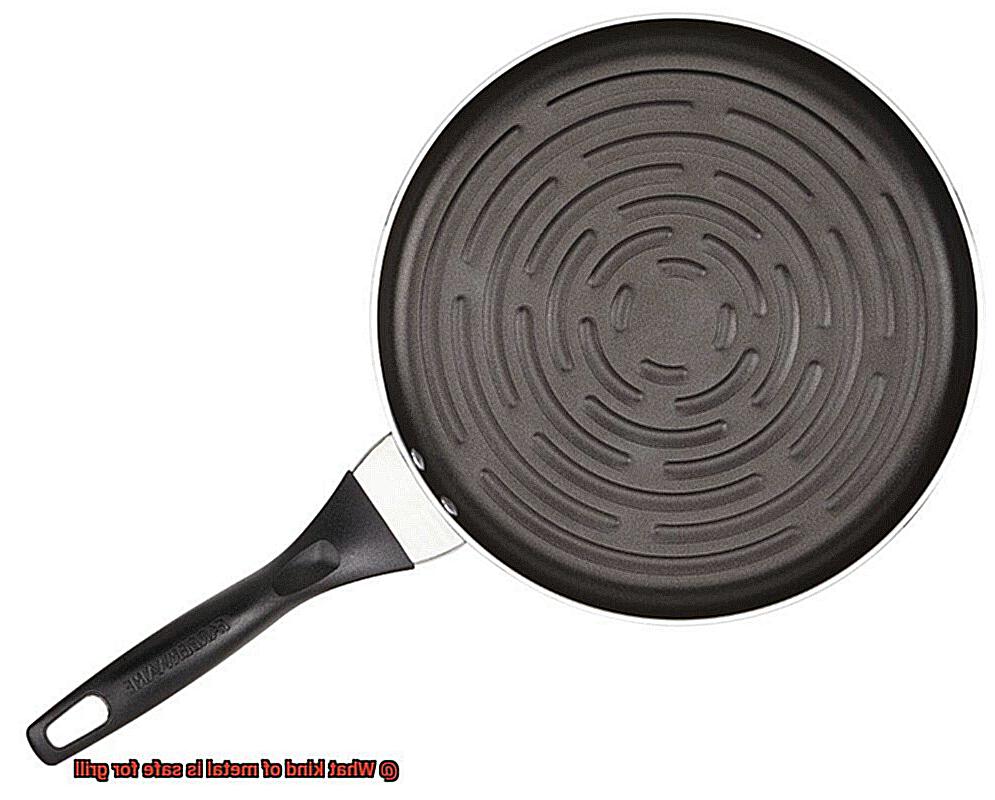
There are several types of grills on the market, including gas, charcoal, and electric grills. Each type has its own set of advantages and disadvantages, so it’s important to choose the one that best suits your needs.
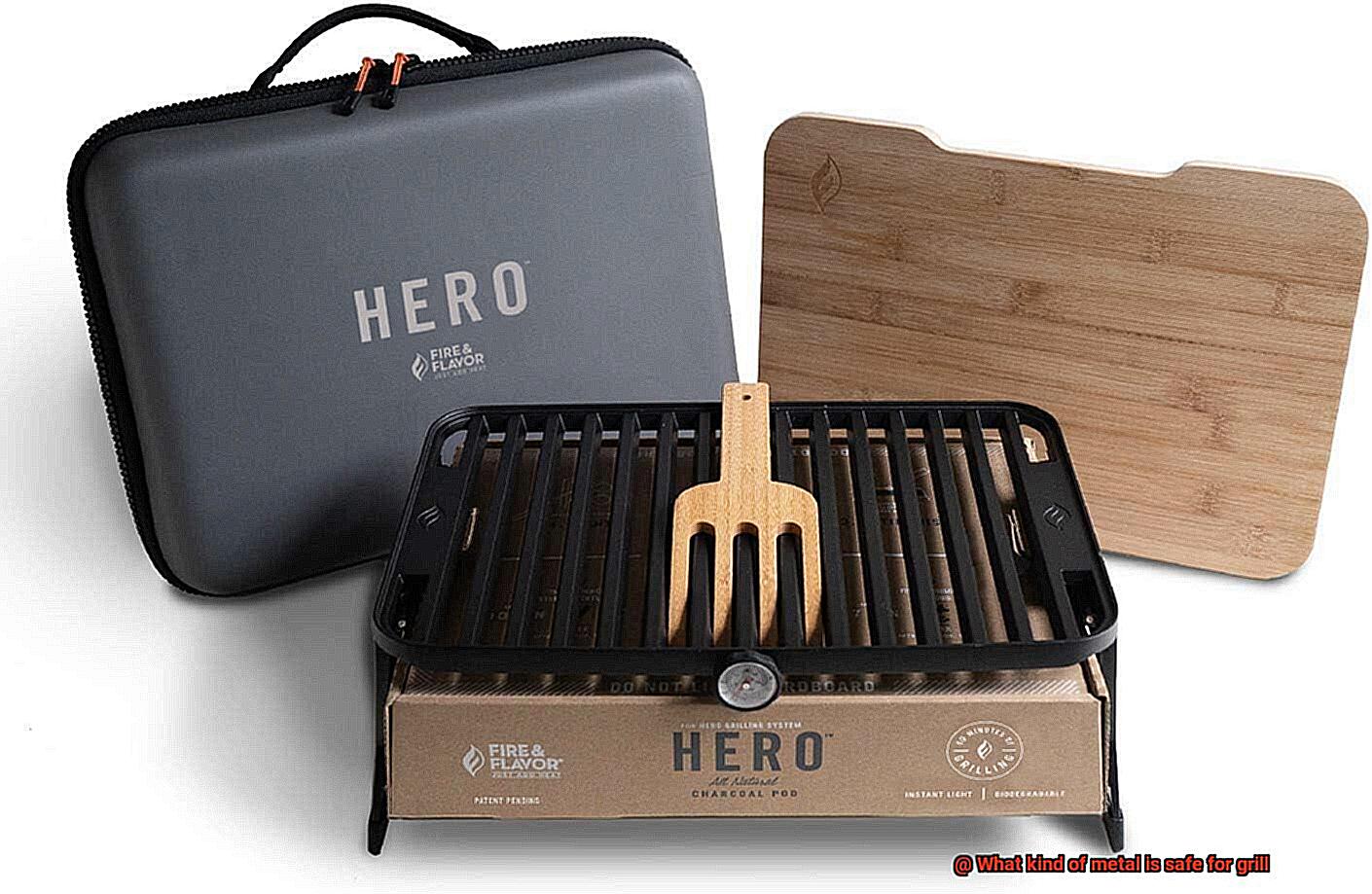
However, the choice of metal used for your grill is just as crucial as the grill itself. The right metal will ensure safe and healthy meals, while the wrong metal can leach harmful chemicals into your food.
Stainless steel is widely considered one of the safest metals for grilling. It is non-reactive and won’t leach any harmful chemicals into your food. Moreover, stainless steel is durable, easy to clean, and can handle high heat without warping or corroding.
Cast iron is another popular choice for grilling because of its ability to cook food evenly while retaining heat. However, it requires proper care and maintenance to prevent rusting and contamination of your food.
While aluminum is commonly used for grilling, it isn’t as safe as stainless steel or cast iron. This metal can react with acidic foods causing them to discolor and affect the taste of your food. In addition, aluminum can warp or melt at high temperatures.
On the other hand, copper, brass, and galvanized steel should be avoided when it comes to grilling. These metals can leach harmful chemicals into your food when exposed to high temperatures, posing a health risk.
To ensure safe and delicious grilled meals year-round, keep your grill clean and well-maintained by regularly cleaning the grates and removing any build-up of grease or debris.
Understanding the Different Types of Metals Used for Grilling
Grilling is a beloved pastime for many, but it’s important to consider the safety of the metal used for cooking. Here are 5 sub-sections that explore the different types of metals used for grilling and their associated safety considerations.
Stainless Steel – Durable and Safe
Stainless steel is a durable and reliable metal for grilling. It’s easy to clean, resistant to corrosion, and does not react with food. However, not all stainless steel is created equal. Look for high-quality stainless steel labeled as “food grade” or “304 grade” to ensure it’s safe for cooking. Lower quality stainless steel may contain harmful chemicals that can leach into food during cooking.
Cast Iron – Retains Heat Well but Requires Maintenance
Cast iron is a popular option for grilling because it retains heat well and can be used on both gas and charcoal grills. However, cast iron requires proper care to prevent rusting and contamination of food. It should be seasoned before use and cleaned and oiled after each use.
Aluminum – Lightweight but Reactive
Aluminum is a lightweight and affordable option for grilling, but it can react with acidic foods, causing a metallic taste. To avoid this, use aluminum foil or pans coated with a non-stick material. Aluminum can also warp or melt at high temperatures, posing a hazard.
Copper and Brass – Avoid for Grilling
Copper and brass are not recommended for grilling due to their high reactivity with acidic foods. These metals can leach into food and pose health risks if consumed in large amounts.
Proper Maintenance is Essential
No matter which metal you choose for your grill, proper maintenance is crucial to ensure safety and longevity. Clean your grill thoroughly after each use and store it in a dry place to prevent rusting.
Pros and Cons of Stainless Steel
First, let’s talk about the positives. Stainless steel is a popular choice because of its incredible durability and ability to withstand high temperatures without warping or melting. This means you can crank up the heat and cook your food to perfection without worrying about damaging your grill. Additionally, stainless steel is non-reactive, which means it won’t leach any harmful chemicals or flavors into your food.
Another major advantage of stainless steel is its resistance to rust and corrosion, making it an excellent choice for outdoor grills that are exposed to the elements. Rain or salty air won’t ruin your grill, as stainless steel can handle it all without rusting or corroding.
However, there are some downsides to consider when using stainless steel for grilling. One issue is that it can be prone to sticking, especially when cooking delicate foods like fish or vegetables. To prevent sticking, you may need to use a non-stick cooking spray or oil.
Another consideration is the cost. Stainless steel grills can be more expensive than other metals used in grills, such as cast iron or aluminum. While the investment may be worth it in terms of durability and longevity, it may not be the best option for those on a tight budget.
In summary, stainless steel is an excellent option for grilling that offers resistance to rust and corrosion, but it may require additional measures to prevent sticking and comes with a higher price tag compared to other metals. If you’re looking for a low-maintenance grill that can handle high temperatures and resist corrosion, stainless steel might just be the perfect choice for you.
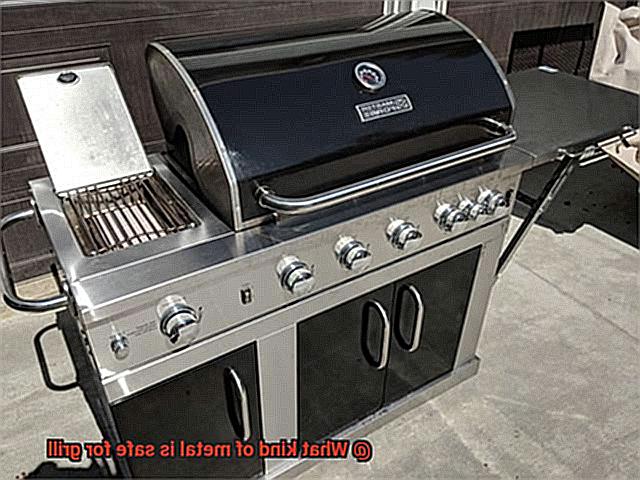
Pros and Cons of Cast Iron
If you’re in the market for a new grill or looking to upgrade your current one, you may be wondering about the pros and cons of using cast iron on your grill. As an expert in all things grilling, I’m here to break it down for you.
Let’s start with the pros. Cast iron is a popular choice for outdoor grilling because of its ability to retain heat and distribute it evenly. This means that your food cooks more evenly and has a delicious, crispy crust. Cast iron grill grates are also incredibly durable and can last for years with proper care and maintenance. Plus, they’re relatively easy to clean – just scrub them with a wire brush and season with oil after each use.
But what about the cons? Firstly, weight is a significant consideration when it comes to cast iron grill grates. They can be heavy and challenging to move around, which may not be ideal if you need to transport your grill frequently. Additionally, cast iron can rust if not properly cared for, so it’s crucial to keep the grill grates clean and well-seasoned.
Another potential downside is that cast iron can take longer to heat up than other types of metal, like stainless steel or aluminum. This means that you may need to preheat your grill for a longer period of time before you start cooking.
To summarize, here are the pros and cons of using cast iron on your grill:
Pros:
- Retains heat and distributes it evenly
- Creates delicious, crispy crusts
- Durable and long-lasting
- Relatively easy to clean
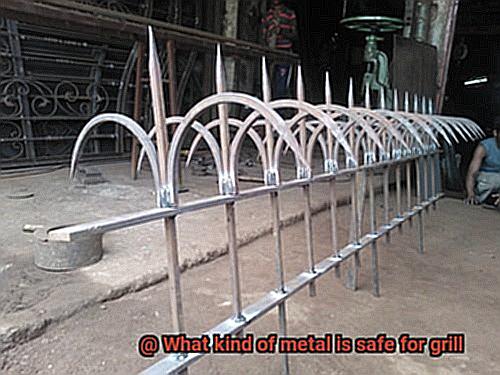
Cons:
- Heavy and difficult to move around
- Requires proper care to avoid rusting
- Longer preheating time
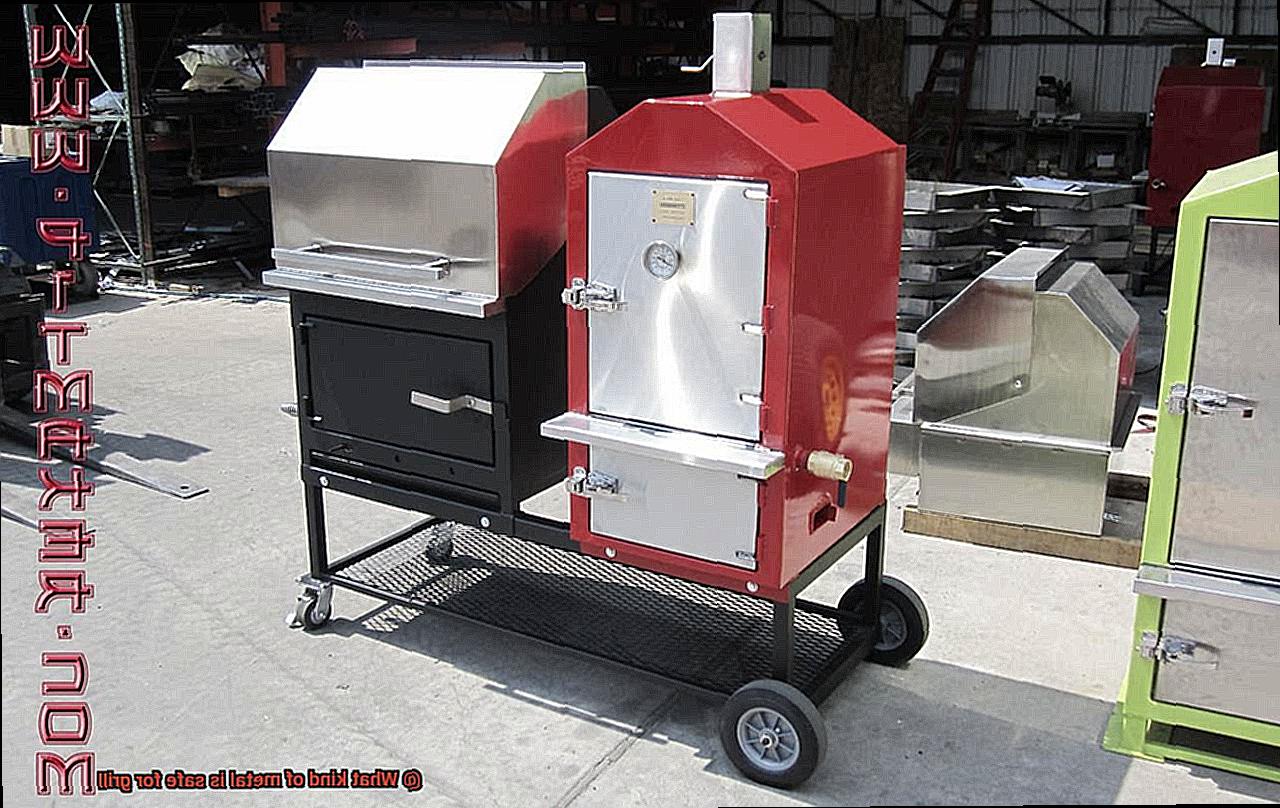
Ultimately, whether cast iron is right for your grill comes down to personal preference and needs. If you want an even cooking surface with the ability to sear and create a crispy crust on your food, cast iron is a great option. Just be prepared for the weight and maintenance requirements that come along with it.
Pros and Cons of Aluminum
When it comes to grilling, aluminum is a popular metal choice for its lightweight and excellent heat conductivity. It heats up quickly and distributes heat evenly, making it ideal for grilling. However, before you fire up your aluminum grill, there are some important pros and cons to consider.
Let’s start with the pros. Aluminum is a low-maintenance metal that is easy to clean and maintain. This makes it a popular choice for those who want a hassle-free grilling experience. Additionally, aluminum is less expensive than other metals, which means it’s an attractive option for budget-conscious grillers.
However, aluminum does have its downsides. One of the main concerns with aluminum is its potential reaction to acidic foods, such as tomatoes or citrus. When in contact with these foods, the metal can leach into the food, affecting the taste and potentially causing harm if consumed in large quantities over time.
Another disadvantage of using aluminum is its durability compared to other metals like stainless steel or cast iron. At high temperatures, aluminum can easily dent or warp, which can affect the performance of your grill over time.
So what does this mean for you? If you’re looking for a lightweight, affordable, and easy-to-maintain grill option, then aluminum may be a good choice for you. However, if you’re concerned about potential health risks or want a more durable and long-lasting grill, other options may be more suitable.
To ensure safe use of an aluminum grill, it’s important to follow manufacturer’s instructions and use proper grilling tools and techniques. Safety should always be a top priority when it comes to grilling.
Other Metals to Avoid for Grilling
As you prepare to indulge in the joys of grilling, it’s crucial to choose the right metals for your grilling equipment. But that’s not all – you also need to avoid the wrong ones. Some metals can pose significant health risks when exposed to high temperatures or acidic marinades. As an expert in grilling safety, I’m here to guide you through other metals that you should steer clear of for a safe and enjoyable grilling experience.
Let’s start with copper, a popular material for cookware due to its excellent heat conductivity. However, it’s not recommended for grill use because it can react with acidic foods such as tomatoes or vinegar-based marinades. This reaction can cause copper to leach into your food, leading to unpleasant symptoms like nausea, vomiting, and diarrhea. To avoid these symptoms and keep your food safe, skip the copper.
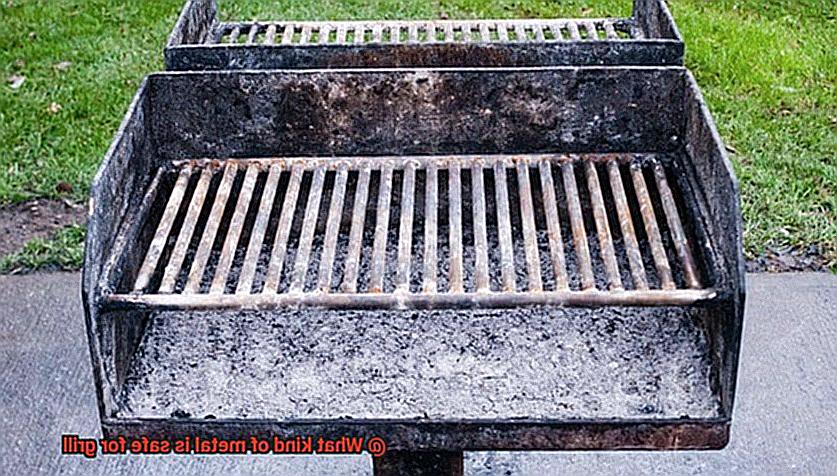
Next up is brass, a metal that contains copper and zinc. Like copper, brass can also react with acidic foods, making it unsafe for grilling. But wait, there’s more – brass also contains lead, a toxic metal that can cause severe health problems when ingested. To stay safe, avoid using brass utensils or cleaning tools on your grill.
Now let’s talk about galvanized steel, which is coated in zinc to prevent rust and corrosion. However, when heated to high temperatures, the zinc coating can vaporize and turn into toxic fumes that can be harmful when inhaled. That’s why it’s best to steer clear of any grilling equipment made from galvanized steel.
Lastly, let’s address aluminum foil – a go-to tool for many grillers. While it may seem convenient, it’s not recommended for use when grilling. When exposed to high heat, aluminum foil can release harmful chemicals that pose health risks when ingested. The American Cancer Society advises against using aluminum foil for cooking or grilling due to the potential risk of aluminum leaching into food.
Tips for Using the Right Metal for Grilling
Grilling is one of the best ways to cook food, but it is crucial to choose the right metal for safe and healthy cooking. The metal you use can affect the flavor of your food and its safety. Here are the different metals that can be used for grilling and their benefits and drawbacks.
Stainless Steel
Stainless steel is a popular choice for grill grates because it is durable, resistant to rust and corrosion, and easy to maintain. High-quality stainless steel with a high nickel and chromium content resists heat and corrosion better than lower quality stainless steel. It is also safe to use since it does not react with acidic foods.
Cast Iron
Cast iron is another popular choice for grill grates because it has excellent heat retention and distribution properties, making it ideal for searing and creating grill marks. However, cast iron requires more maintenance than stainless steel since it can rust if not properly seasoned and cared for.
Aluminum
Aluminum is commonly used for grilling, but only heavy-duty aluminum that can withstand high temperatures should be used. Lightweight or disposable aluminum pans can react with acidic foods and release harmful chemicals.
Thickness of Metal
The thickness of the metal used for grilling also matters. Thicker metal retains heat better, providing even cooking results compared to thinner metal.
Avoid Copper and Brass
Copper or brass should be avoided when choosing the right metal for grilling since these metals can react with acidic foods and release toxic compounds that can harm your health.
Conclusion
To ensure both the flavor and safety of your grilled food, choosing the right metal for your grill is crucial. While certain metals like aluminum, copper, and brass can emit harmful fumes when exposed to high heat, stainless steel and cast iron are considered the safest options for grilling. Stainless steel boasts durability, rust resistance, and non-reactivity with food while cast iron excels at searing meat and retaining heat.
But don’t forget that proper maintenance is key to prevent rusting and contamination of your food. It’s also important to steer clear of other metals like galvanized steel or brass utensils that can leach harmful chemicals into your food when exposed to high temperatures or acidic marinades.
For even cooking results, thick metal grates are recommended. And if you’re using aluminum, make sure it’s heavy-duty and can withstand high temperatures. By following these safe grilling practices and regularly cleaning and maintaining your grill, you’ll be well on your way to becoming a true grill master.

